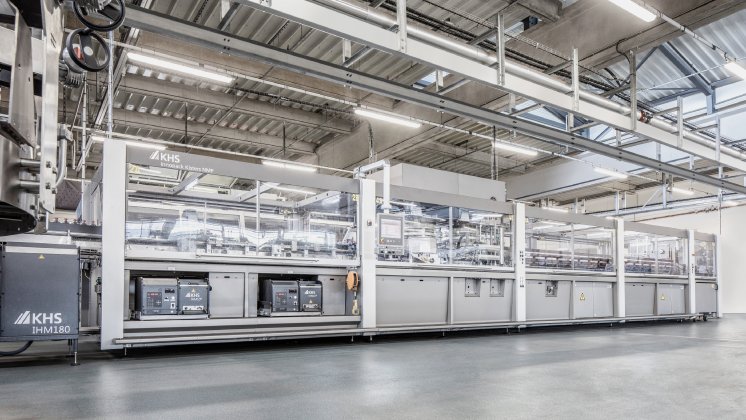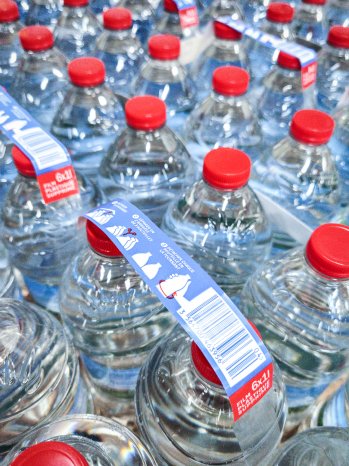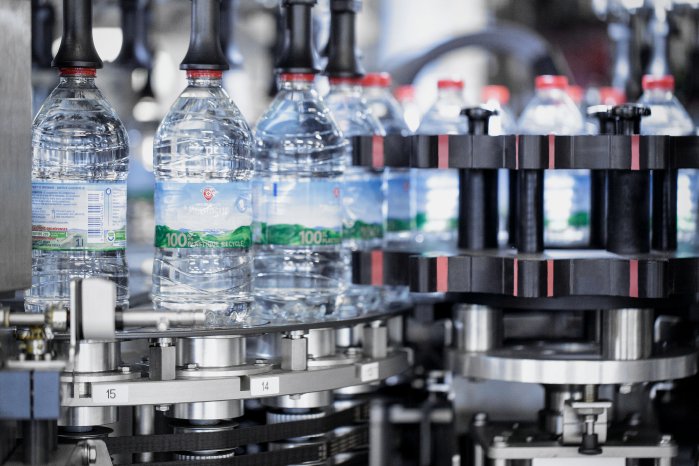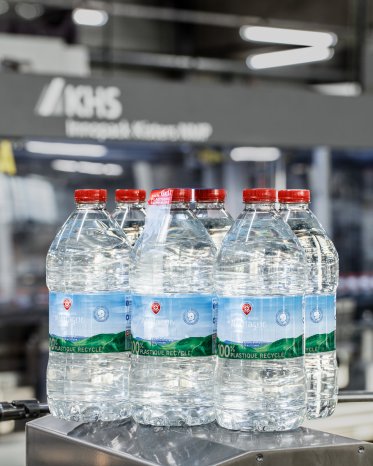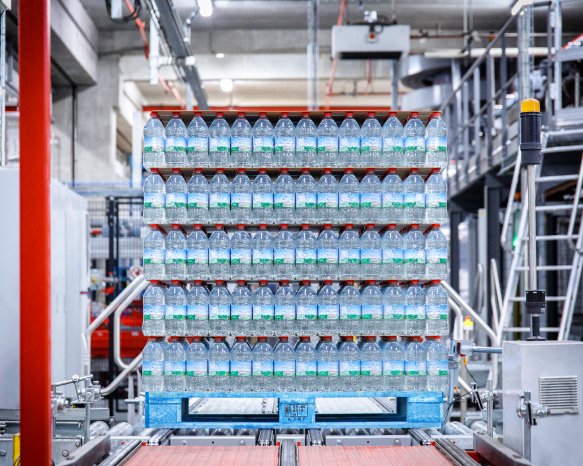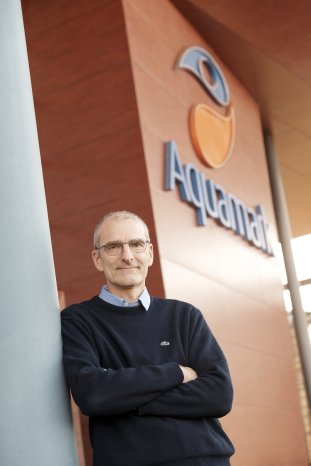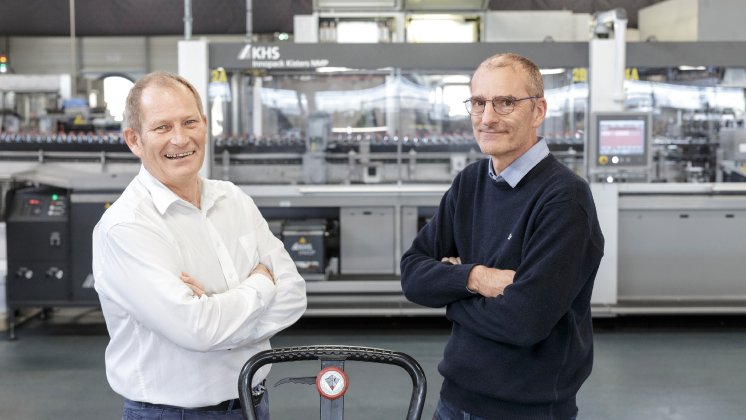Single-use plastics are having a hard time of it in France at the moment, with the French government aiming to largely eradicate the use of this material by 2040. Since the beginning of 2022, for instance, it has been forbidden to sell a wide range of fruit and vegetables in plastic packaging. The object of the exercise is to specifically encourage and expand the instigation of returnable systems and thus closed recycling loops. This consistent policy has met with considerable approval from the general public. The number of eco-conscious consumers has significantly increased over the last few years, with the result that local companies are starting to feel the pressure. It thus appears to be clear which direction developments are to take.
Reduce packaging material without compromising on bottle design
French retail chain E.Leclerc is setting a good example in this respect, deciding to gradually cut down on the amount of packaging material – especially plastics – used for its own brands even before the state regulation came into effect. This conscious decision to become more environmentally friendly is part of an ambitious sustainability strategy that envelops all areas of the company from energy management through transportation systems to the use of resources. The same applies to E.Leclerc’s many subsidiaries, of which the Aquamark water brand is one.
The beverage producer from the community of Laqueuille, a good 40 kilometers west of Clermont-Ferrand, specializes in the bottling of still and carbonated water into PET bottles. For many years Aquamark relied on classic shrink film to package its 0.33, 0.5, 0.75, 1.0- and 1.5-liter containers. “Film packaging has obvious advantages for consumers. The packs can be safely and easily transported and unpacked with little effort,” explains Hubert Decroix, Aquamark’s general manager. “However, when it comes to sustainability and environmental protection, conventional secondary packaging doesn’t do so well.” The use thereof clearly contradicted the bottler’s sustainability strategy that for several years has stipulated that very light PET bottles made of 100% recyclate are used, thus saving significant amounts of plastic. It thus follows that in 2019 the concern decided to replace its film with a resource-conserving, environmentally-friendly alternative – an ambitious undertaking with annual filling quantities of around 350 million liters of water.
Here, Hubert Decroix and his team had a fixed target in mind right from the very beginning. “We wanted a pioneering machine that’s especially gentle on resources and uses as little plastic as possible,” the general manager states. “We didn’t want to compromise on the container design, however, for our lightweight bottles already satisfy our high demands regarding the protection of resources and the environment.”
Conscious decision for more environmental protection
In looking for a suitable alternative, Hubert Decroix remembered reading an article in the KHS Group’s customer magazine on the development of the Snap Pack. The Carlsberg Group had launched the system to market in 2018 in cooperation with KHS. The Snap Pack is based on the environmentally-friendly Nature MultiPack packaging system engineered by the Dortmund systems supplier that forms beverage cans or PET bottles into packs using dots of adhesive. “In theory, this system without any secondary packaging was exactly the answer we were looking for for our PET bottles,” says Hubert Decroix. He thus spoke to his French KHS representative Thierry Tanezie, whom he has been in close contact with for many years.
A period of intensive talks followed, with both parties encouraging and challenging one another, as Thierry Tanezie remarks. “Aquamark made high demands of us regarding product quality, machine efficiency and the use of resources,” he claims. One big challenge marking the start of the project was the low weight of the bottles to be processed. “Lightweight bottles hadn’t yet featured in the development of our Nature MultiPack technology. As Aquamark understandably didn’t want to make any changes to its bottle design, we adapted our packaging system so that lightweight packs can now be processed on it without any trouble whatsoever,” explains KHS’ sales manager for France.
The adhesive needed to hold the containers together played a key role in the optimum implementation of the customer’s specifications, with the amount used to join the client’s 1.0-liter bottles reduced from 1.8 to 1.0 grams. “The dedication shown by KHS’ expert team was truly impressive. They understood and implemented our complex requirements perfectly. This is by no means par for the course but the result of a fantastic exchange of knowledge, from which both parties profit in the long term,” praises Hubert Decroix.
Efficient and economical
The numerous further developments and cooperative nature of the companies’ partnership ultimately convinced the beverage bottler to invest in the resource-conserving KHS system for its 1.0-liter bottle in 2020. In May 2021 the first Innopack Nature MultiPack machine with an output of up to 25,000 bottles an hour was successfully commissioned. Since September of last year the new six-packs have been marketed at E.Leclerc’s around 750 supermarkets throughout the nation – with great success: since the market launch sales have increased by 15%. “This new style of packaging is very popular with our customers. They understand that we want to make a valuable contribution to the protection of our environment with our Nature MultiPacks,” Hubert Decroix explains. By doing away with the shrink film, Aquamark currently saves about 25,000 metric tons of plastic a year.
Moreover, the new acquisition proves convincing as it consumes less energy than the shrink packer previously in use thanks to the omission of the heating tunnel. With this saving and by cutting down on the amount of adhesive needed, costs per pack have been considerably reduced. Hubert Decroix estimates that he will have a full return on his investment in two years. “At the start of the project we of course studied all of the systems on the market. None of them could match the benefits of KHS’ plant engineering as regards sustainability, efficiency and economy,” the Frenchman says. “The Nature MultiPacker has definitely exceeded our expectations. It has an efficiency of 98% – which is a marvelous result.”
This high level of productivity also has a positive impact on the work performed by the operators. The old shrink packer required frequent routine tasks to be carried out, one of which was to change the film reel on a regular basis, with the machine then temporarily stopped. “In contrast, the KHS system is designed in such a way that it operates fully automatically. This considerably eases the operators’ workload,” Thierry Tanezie comments.
Showcase project for the French market
Such outstanding results made Aquamark’s decision to procure a second Innopack Nature MultiPack machine an easy one. The new investment, that is to process up to 32,000 1.5-liter bottles an hour, is scheduled for commissioning in September 2022. The company expects that in switching over to this system it will be able to save an additional 250,000 metric tons of plastic per annum, for the 1.5-liter bottle accounts for about 50% of the water brand’s sales volume. Hubert Decroix is positive about the market launch in October 2022. “I’m reckoning on us also achieving a solid growth with our 1.5-liter bottle. If this proves to be the case, we’ll gradually build up our partnership with KHS to include further sizes of container, among other things.”
The French beverage industry has already taken note of the great success of the Nature MultiPack at Aquamark. “Our project has awakened the interest of a good number of bottlers. We’ve since received numerous queries for our environmentally-friendly system,” says KHS sales manager Thierry Tanezie happily. It may be that this project is therefore just the start of a bigger change on the local market.
